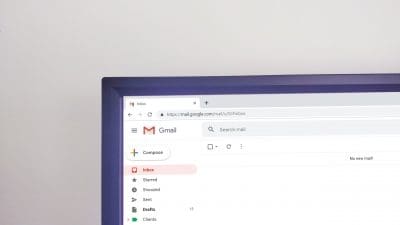Suppose you’ve just had an interview with a company, and after spending a few hours in the office speaking with the team, you realize that the position is not suitable for you. Or suppose that you’ve been interviewing with multiple companies, and your preferred choice just got back to you with an offer–and a 24-hour deadline to accept. If so, you might withdraw your job application with a company after you’ve entered the hiring process.
Remember that options have a lot of value, especially if you can leverage multiple job offers in the negotiation stage. But if you want to withdraw from an interview/hiring process or initial job application, there are ways to navigate that gracefully. Here’s a quick overview of how to tell a prospective employer that you’re withdrawing your job application and a template for exactly what to say in that withdrawal letter.
Also on Mediabistro


Some Reasons to Withdraw a Job Application
You might choose to withdraw from a job for many reasons. Maybe you’ve been hired elsewhere, realized the role isn’t a good fit, or have personal matters that will prevent you from joining a new company at this time. The good news is that candidates always withdraw from job applications. If done with respect and promptness, a withdrawal doesn’t have to have any negative consequences for your overall career.
When to Withdraw from a Job
The short answer is as soon as you know you do not want the job.
It’s important to be courteous and inform an employer immediately if your candidacy is no longer in the running so they can focus their efforts on other candidates. If you’ve accepted a job offer with another company, we recommend withdrawing outstanding applications with any other companies immediately. That’s why it helps to stay organized during your job search with a spreadsheet or other means of tracking which companies you’ve applied to and your stage in the process.
How to Withdraw Your Application
The way to withdraw a job application will depend on where you are in the process. If you haven’t been invited to an interview yet, you can likely log into your application portal and choose an option for “withdrawing” your application. Or, if you’re working with a third-party recruiter, you can communicate your decision to that person and let him/her take care of the rest. However, if you’ve already interviewed with the company and have established a deeper connection, your withdrawal should be personally sent to your contact–in writing.
Communicating your withdrawal from a job application process requires a delicate balance between showing appreciation and declining a role. You don’t want to burn any professional bridges! A brief, professional email is the best way to communicate your intention and leaves no room for ambiguity. It’s also a way to leave a final impression of your professionalism.
What to Say in the Withdrawal Email
Start by addressing the email to the hiring manager or in-house recruiter you interviewed with. Say something positive about the company and thank them for their time, but explain briefly why you will not be continuing in the job application process–you’ve accepted another job, you’re moving to a new city, you’ve decided to take your career in a different direction, etc. You don’t need to go into too much detail (and in fact, it’s better not to go into too much detail if you noticed some red flags at the company during your interview process). Rather, keep the tone positive and take the “it’s not you, it’s me” approach.
Sample Withdraw Application Email Template
Subject Line: [Your Name] – Update on Status of Candidacy for [Role]
Dear [Hiring Manager’s Name]:
Thank you for taking the time to interview me for [Position Title] at
[Company Name]. I enjoyed the opportunity to meet the team in person and learn
more about [something specific that came up in the interview]. After careful
consideration, I have [list reason here: “accepted a position at another
company,” “determined that my skills are not a match for the role,” “decided to
relocate,” etc.] and would like to withdraw my application.
Thank you again for your time and consideration. I wish you luck in your
search.
Best,
[Your Name]
But Wait–What If You’ve Already Been Offered the Job?
If you’ve been extended a job offer but wish to decline, you can use the same type of email template as above. You may also wish to add a request to stay in touch, especially if you’ll be staying in the same industry and may cross paths again.
Now if you’ve already accepted a job offer, you should do everything possible to ensure you can stick with that commitment–especially if not doing so will breach an employment contract. However, certain reasons (health concerns, unexpected personal circumstances, etc.) may require you to decline your offer or withdraw from the job. According to a Robert Half survey, 28% of workers said they have reneged on a job offer, usually because a better opportunity came. Withdrawing your application after accepting should only be a last resort.
Final Tip: Only Apply to Jobs You Want in the First Place
To reduce the likelihood of needing to withdraw from a company’s hiring process, do your research at the outset and only apply to companies you believe would be a great fit for you. Go on some informational interviews, and read reviews of companies initially. Then, honestly assess each job description to determine if you can see yourself performing the duties of that role every day.
FAQs on Withdrawing a Job Application
1. When is it appropriate to withdraw a job application?
It’s appropriate to withdraw your job application as soon as you decide the position isn’t the right fit for you, whether that’s due to accepting another offer, realizing the role doesn’t align with your career goals or personal reasons. Promptly informing the employer allows them to concentrate on other candidates.
2. How should I withdraw my application if I haven’t been interviewed yet?
If you’re early in the application process and haven’t been invited for an interview, withdrawing can often be done directly through the company’s application portal. Alternatively, if you’re working with a recruiter, notifying them of your decision allows them to handle the withdrawal on your behalf.
3. What is the best way to withdraw after an interview?
After an interview, it’s respectful to send a personalized email to your main contact, such as the hiring manager or recruiter, explaining your decision to withdraw. This communication should be professional, concise, and express gratitude for the opportunity.
4. What should I include in my withdrawal email?
Your email should start with a thank you to the hiring manager for their time and consideration. Briefly explain your reason for withdrawing without going into excessive detail. Maintain a positive tone throughout the message to leave a good impression.
5. Can I withdraw my application after receiving a job offer?
Yes, you can withdraw even after receiving a job offer. Use a polite and thankful email to communicate your decision, similar to the template provided for withdrawing at earlier stages. If you wish to maintain a network connection, consider adding a line about staying in touch.
6. What if I need to withdraw after accepting an offer?
Withdrawing after accepting a job offer should be a last resort and handled with utmost professionalism. Explain your reasons honestly, whether due to unforeseen personal circumstances or a significant, unexpected opportunity. Aim to maintain a positive relationship with the employer despite the withdrawal.
7. How can I minimize the need to withdraw from job applications?
To avoid withdrawal, thoroughly research companies and roles before applying. Ensure the positions align with your career goals and personal values. Informational interviews and company reviews can also provide valuable insights into whether a job would fit.
8. Will withdrawing from a job application negatively impact my career?
While candidates regularly withdraw from job applications, doing so respectfully and promptly typically doesn’t negatively affect their careers. However, it’s important to handle the withdrawal professionally to maintain a positive reputation within your industry.









